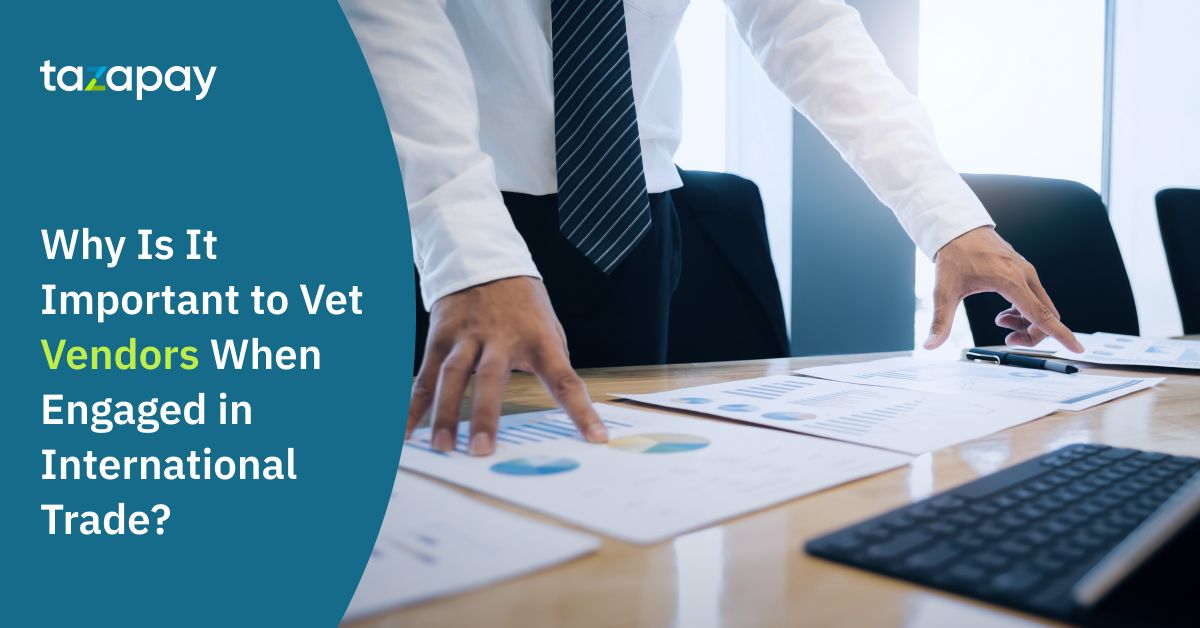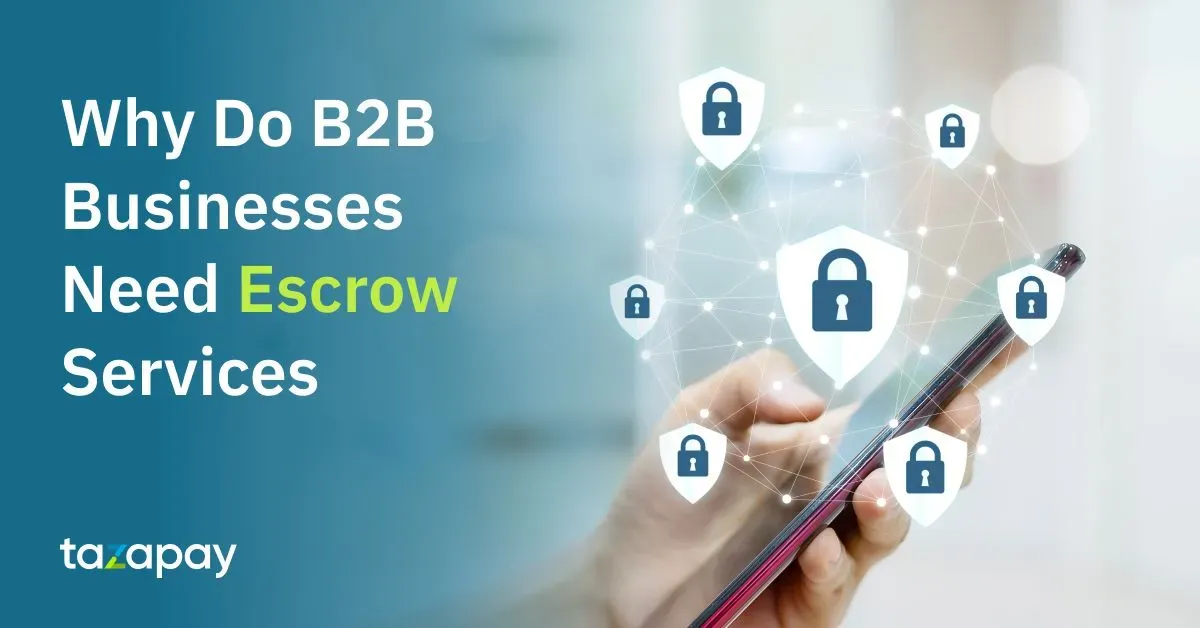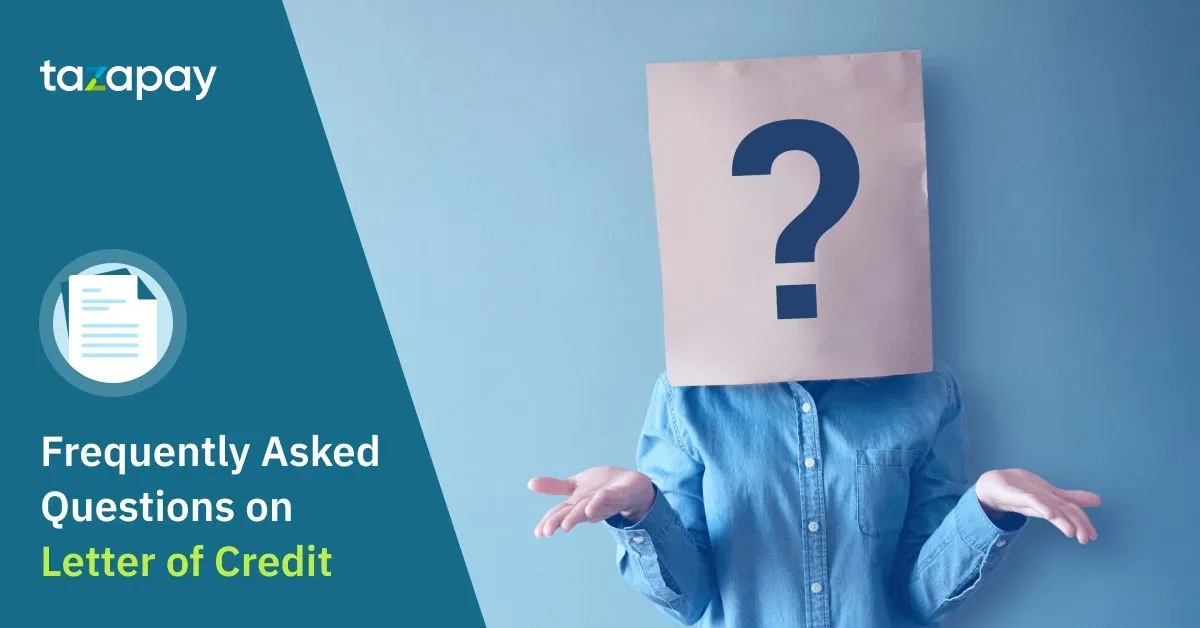- Home
Blog Blog
Export & Import Export & Import
Why Is It Important to Vet Vendors When Engaged in International Trade?
Why Is It Important to Vet Vendors When Engaged in International Trade?

We have all heard that vendor vetting is critical for businesses engaged in international trade. But how critical?
Here’s a statistic to ponder on: According to a Deloitte report, 84% of companies have experienced a damaging third-party incident in the last three years. In fact, the same report suggests that 30% of the companies believe that their share prices could fall by 10% or more after an incident if they did not adequately manage third-party risks!
This is where having an efficient vendor vetting process in place can help your business minimize vendor-related risks. Remember, your vendor/supplier is the most important cog in your supply chain. Hence, you must perform due diligence to ascertain their reliability with utmost precision. Not being able to vet a vendor properly, in the beginning, will ultimately increase the risk of the unreliability of operation, non-delivery crimes, financial frauds, data breaches, and more.

Let’s look at six reasons why it is important to vet vendors when engaged in international trade.
Vendor Vetting: Why You Need It
1. Select better vendors
As a business, it is your responsibility to ensure that you have done extensive research on your extensive overseas trade partners before signing on with them. Therefore, having a supplier due diligence checklist in place before onboarding any vendor is paramount. With this checklist, you can collect information, verify credentials, identify and evaluate any risks of doing business with the vendor before selecting the right one.
2. Enhance your negotiations
Since the vendor vetting process is all about verifying the capability and credibility of your vendors, you never know what useful information it digs up. As a business, you can use it to your advantage in negotiations with the vendor to offset potential risks or receive better terms of the deal.
3. Prevent delays and revenue loss in business
If your vendor is not up to the mark, then your supply chain will suffer. Any disruptions on the vendor side, such as lapses in the process, cost-cutting, operational setbacks, data breaches, etc., can hugely impact your business at the end of the line. The result? Delays and financial consequences. With a vendor vetting process, you can avoid vendors with a history of disruptions and manage such threats with ease.
The great thing about vendor due diligence is that it helps you prepare for unforeseen circumstances and risks throughout your relationship with a vendor. When you have identified any risks associated with the vendor in the contracting phase, you can remediate them. Then, you can ask the vendor to take corrective action. You can also plan for certain risks via contract clauses. Thus, you can build accountability and capability to address such risks or any fraudulent activity in the future.
5. Prevent reputational damage and ensure consumer trust
Remember, your vendors can have a direct impact on your brand and reputation. Vendor vetting ensures that they do not compromise on quality, indulge in malpractices, or break compliance that can ruin your brand's standing in the market and the consumer's eyes. Any compromise in the vendor's quality or ability to deliver products can break consumer trust. So, you must ensure that your vendors are reliable through background checks and referrals.
6.Prevent legal and compliance hassles
When you partner with overseas vendors, dealing with various international laws and compliances can be a hassle. However, you get detailed information on all the pre-requisite regulatory compliance, protocols, and laws through vendor vetting. It also enables you to monitor and make sure that your vendors are following all legal protocols diligently.
Conclusion
Thankfully, vetting international vendors and suppliers has become easier than ever before.
From having a supplier due diligence checklist to a proper vendor vetting process, there are many ways to ascertain the credibility of the vendors you are dealing with. However, given the extreme importance of vendor vetting, it is always a great idea to place your trust in professionals. Gone are the days of manually checking trade licenses, websites, and registrar databases.
In this regard, reputed third-party escrow platforms like Omoney have emerged as highly reliable options. Moreover, along with fast and secure escrow services, cross-border businesses can also avail of instant online vendor verifications and detailed company reports. What better way to determine your trade partners' legitimacy, capability, and credibility and keep your business on the right track?
Category

Export & Import
Why Is It Important to Vet Vendors When Engaged in International Trade?
Related Articles

Why Do B2B Businesses Need Escrow Services

Problems Escrow Is Intended to Solve






